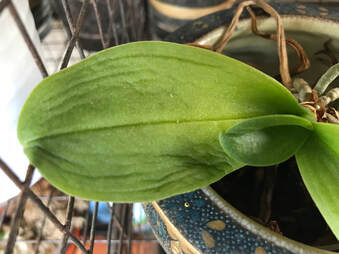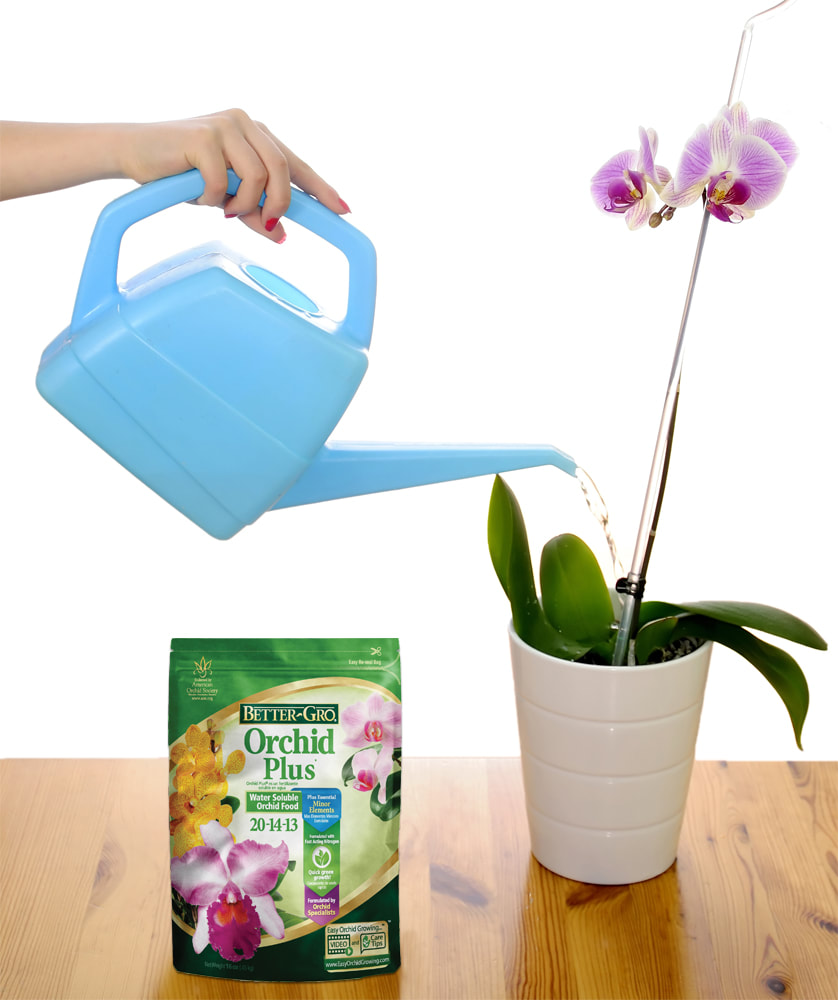|
Better-GroOrchidBlog
There are several factors that lead to poor orchid growth. Correctly identifying the source of the problem is key to understanding how to treat it and avoid it in the future. In this post, we’ll discuss the most common issues that arise from improper watering and feeding levels.  An under-watered Phalaenopsis An under-watered Phalaenopsis Overwatering and Underwatering Not too much and not too little - but just the right amount of water will make your orchids very happy. But how do you know how much is just right? Over-watering is the most common problem associated with poorly performing orchids. Symptoms can look very similar to those of under-watered plants because it often rots the roots and therefore prevents them from taking up adequate amounts of water. The first thing to do is to examine the roots of the plant. If the roots are rotted (soft, black and soggy) then chances are the plant is being over-watered. If the potting media is fresh and the pot size is not too large, then you will need to cut back on the frequency of your watering. Also, because the rot is often associated with a bacteria or fungus, you may need to drench the plant or pot with a good fungicide or bactericide. Under-watered plants often exhibit limp or withered leaves and withered stems or bulbs. This happens because the plant is not getting enough water to keep the leaves, bulbs, or stems turgid. If the pot is not too small for the plant and the roots are in good health (white and firm), then this is easily remedied by watering the plant more frequently. Remember that Cattleyas and Dendrobiums like to dry between waterings. Once the potting media dries out, you should water the orchid promptly. Do not let the orchid stay dry for a prolonged period. Also, realize that larger pots tend to stay wet longer than smaller pots. One trick to learn is to lift the pot up when it is ready to be watered and note the weight of the pot. Now, water your plant thoroughly and let it drain for 5 minutes, then lift the pot up and again note the weight. The difference in pot weight is noticeable and, over time, this can be a quick and easy way to tell when your plant requires watering.
Comments are closed.
|
Resources
|
Company |
|

